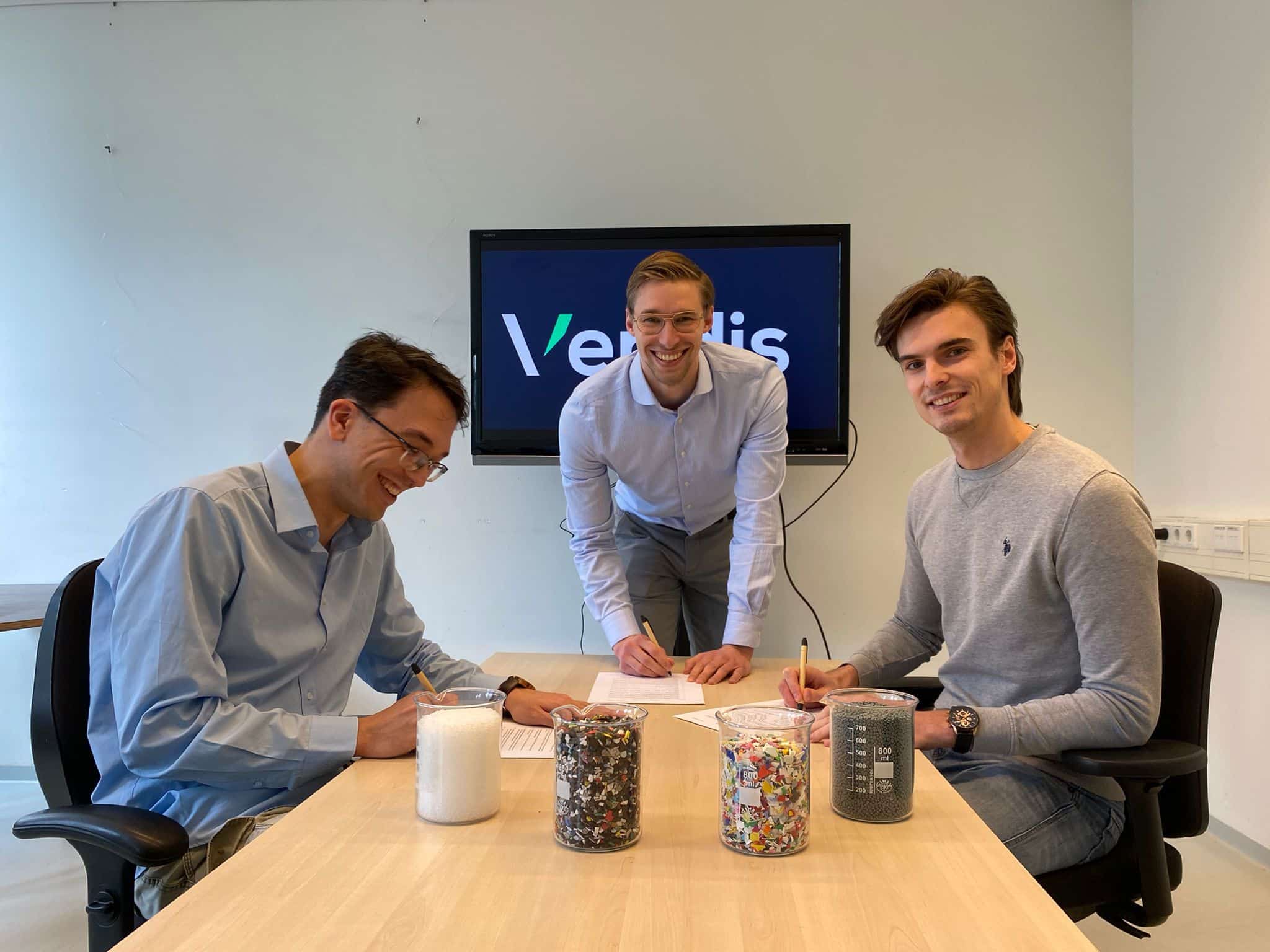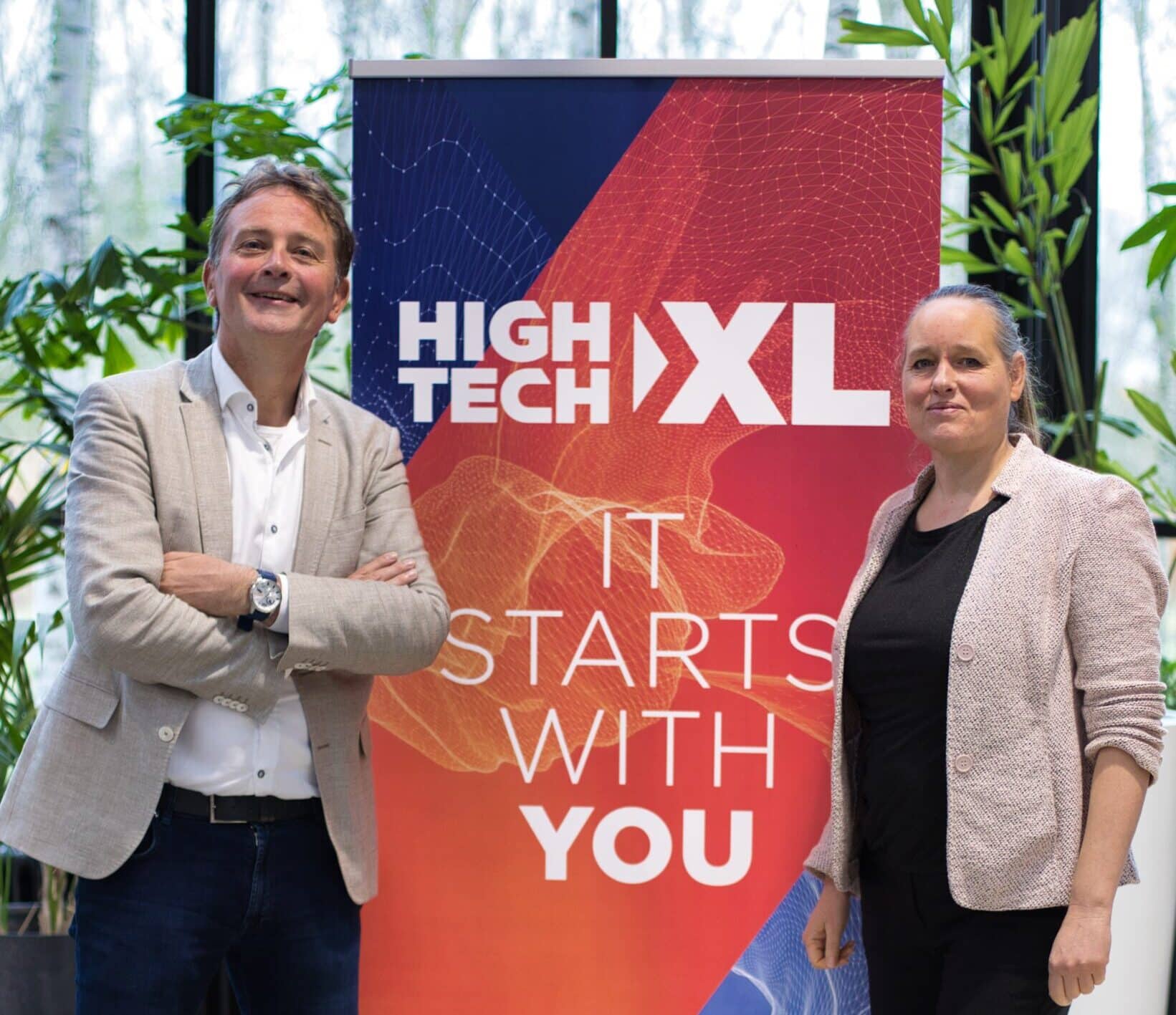Making recycled plastics the norm by 2030: Veridis secures funding from NETZSCH and DOEN

Editor’s note: Veridis is an HighTechXL’s Alumnus. This press release was published our Alumnus website Veridis on February 13th, 2024 and is reposted here with their permission. See original article)
Veridis secures funding from NETZSCH and DOEN Participaties to bring the new quality measurement standard (MADSCAN) to the market
13th of February 2024 – Eindhoven & Amsterdam. Investor NETZSCH and impact investor DOEN Participaties invest in Veridis to bring MADSCAN to the market. With its secured funding, in 2024 and 2025, Veridis will build and run customer pilots with its innovative MADSCAN technology. First in the Netherlands and Germany, having two of the most developed and well-connected plastic recycling industries in Europe. Then, the company will roll out its MADSCAN (eco)system across Europe, realizing its vision of a standardized quality control method for EU plastic recycling.
What is Veridis MADSCAN?
MADSCAN is a new thermal analysis technology, meaning that it measures the different ways in which different plastic types melt and crystallize again. Every type of plastic has a unique thermal ‘fingerprint’ and MADSCAN accurately measures these fingerprints by tracking these thermal changes when heating and cooling a sample of recycled plastic. This allows Veridis to tell recycling companies exactly which types of plastics are in their batches.
Jeroen Glansdorp, CEO Veridis:
“We are incredibly excited to have NETZSCH and DOEN Participaties on board to help us take our company and our technology MADSCAN into the next phase. Together, we are building the solution to accelerate plastic recycling!”
Why is Veridis MADSCAN so unique?
With conventional thermal analysis techniques, analyzing large, representative samples is impossible. This is due to the challenge of transferring heat equally through a larger amount of material. To illustrate, when a piece of frozen food, for example, chicken, is put in an oven, the outside will burn whilst the inside remains frozen. Heat does not transfer well throughout a large item. Because of this problem, today it’s only possible to measure samples of 20-50 milligrams at a time, which then needs to represent more than 1000 kilograms of material. This is of course not the case.
Veridis is the first company to solve this major challenge, being able to already analyze up to 30 grams per sample (a 10.000x sample size increase) today and between 50 and 500(!) grams per sample (a 100.000x sample size increase) with the MADSCAN system soon. This massive leap in scalability enables measuring the composition & quality of large amounts of recycled plastics at a representative scale. This allows recyclers to give better quality guarantees to brand owners to ensure that they can use recycled plastics reliably and effectively in their products to meet their ambitious recycling commitments.
The stakes are high!
25% recycled content in all our plastic packaging in 2027 in the Netherlands and 30% EU-wide in 2030, that’s the dot on our horizon according to the Packaging and Packaging Waste Directive (PPWD). Today, this still hovers around 2% because plastics are not all the same. There are 250+ types of plastics, but these can NOT be recycled together. Flexible food packaging (LDPE) and sturdy shampoo bottles (HDPE) end in the same (plastic)bin, but a Snickers wrapper and a bottle cannot be fused into a new bottle. But how do we measure how well we separate these millions of tons of yearly plastic waste? Barely, and that’s what Veridis aims to change.
It’s… complicated
Recycling plastic requires many complex steps to go from bin to new product. Knowing exactly what we’re recycling at each step is a challenge and existing control methods are not built to analyze plastics at the EU’s ambitious scales. Major brands have made big commitments and the EU dictates recycled contents minima. So we need to solve this challenge, fast!
For more information and interview requests please contact +31 6 36143184
About Veridis
In the grand scheme of enhancing plastic recycling processes and comprehensive metrology for plastic recycling, this study serves as a reminder of the pivotal role of accurate measurement and characterisation. It underscores the necessity of standardised plastic waste characterisation and cooperation among stakeholders across the value chain, fostering a more circular and sustainable plastics economy.
About NETZSCH
Netzsch is one of the most prominent and experienced leaders in the high-precision measurement systems industry and will further cooperate with Veridis as a strategic investor to make its MADSCAN system fully industry-ready.
About DOEN Participaties
DOEN Participaties is the largest impact investor in sustainable and social startups in the Netherlands and has been investing in innovative, sustainable and social startups for more than 25 years. The organization has the ambition to make the world greener and more social. That is why impact is central to all investments. DOEN Participaties invests in the early phase of companies and dares to take risks. The company is fully owned and managed by the DOEN Foundation. The DOEN Foundation was set up by the Postcode Lottery. For more information see www.doenparticipaties.nl
About HighTechXL
HighTechXL is the Netherlands’ premier deep-tech venture builder, solving societal challenges by combining groundbreaking technologies and entrepreneurship. We bring together and activate technology, talent, funding and a strong ecosystem in our unique Venture Building Program.
News

